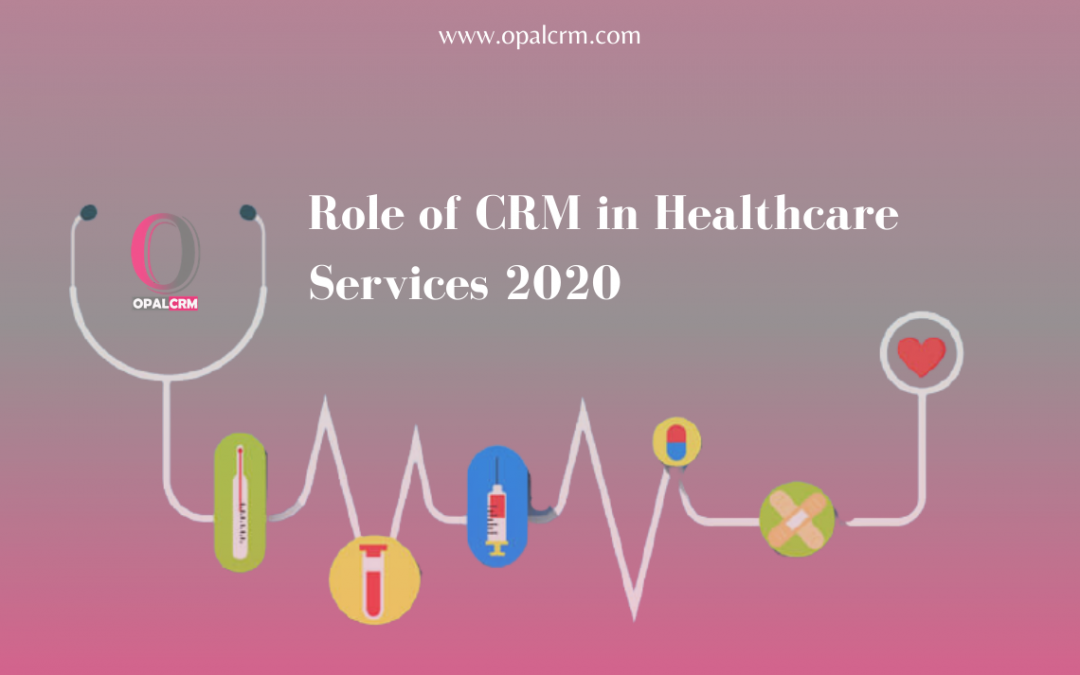The success of any company in a hyper-competitive world depends on finding and leveraging an essential business edge and it depends on CRM and CRM software. In 2020 a healthcare system needs CRM and CRM software to be able to give its patients the latest advances in medical technology and technological progress. This would push the healthcare institute on the road to sustainability. As such, through changing patterns with CRM and CRM software the healthcare industry is not isolated. Healthcare organizations work under the concept of quality of customer service. This depends on how they handle the relationship with their clients, i.e. the patients, to create trust and encourage greater participation of patients in decision making.
HOW CRM IN HEALTHCARE IMPROVES PATIENT CARE
A Healthcare CRM which can also be called Patient Relationship Management (PRM) helps to focus reoriented healthcare on meeting the needs of patients. Healthcare companies, like other business entities, may also use CRM technologies such as Healthcare to concentrate on relationship management while providing more practical advantages. CRM for Healthcare helps improve the quality of care, lower costs and use patient information effectively, and assists healthcare providers to preserve their business in a competitive environment.
HEALTHCARE INDUSTRY WITH CRM SOFTWARE
CRM for healthcare systems can turn into a centralized data center for the management of multiple data streams. This includes contact, analytics, and other passive interactions between patients. This helps healthcare institutes develop an active customer base involving a relationship around the plateau with healthcare professionals. CRM software can help manage patients, doctors, hospitals, laboratories, pharmacies, etc. Many common communication methods used are reminders for doctor’s appointments, missed medication alerts, health tips, patient education, health camps event reminders, wellness lectures, etc. CRM and CRM software helps build brand recognition and convey the notable accomplishments of hospitals to patients and information management in blog format and on social media.
LISTED BELOW ARE SOME OF THE MAIN AREAS WHERE THE HEALTHCARE SECTOR WILL BENEFIT FROM CRM:
1. ACCURATE, APPROPRIATE, AND TARGETED MESSAGING:
The consumers can start sending the appropriate messages to the right patients through a CRM platform with the help of CRM and CRM software. The healthcare institute will start sending targeted messages to the segmented patient database by using CRM-based targeted messaging. This is made possible by managing and monitoring the marketing strategies on multi-channels. CRM and CRM software allows companies in the healthcare sector to begin to understand and target patient behavior accordingly.
2. CENTRALIZED DATA MANAGEMENT FOR PATIENTS:
The healthcare institute typically places the responsibility on the patient to handle patient details. A significant portion of that responsibility can be automated by the Medical CRM platform. Through CRM and CRM software you will be able to streamline and handle all applicable patient information sources in this way.
3. IN-DEPTH PROFILING OF PATIENTS WITHIN CRM:
CRM for Healthcare encourages more patient care. In addition, it also helps you to further grasp your entire patient database. A resilient healthcare CRM system with CRM and CRM software allows companies to predict patient needs that could help healthcare staff to shortlist potential treatments. You may also produce in-depth reports by incorporating all patients within a single dashboard. Additionally, this data may be optimized to produce more useful information for the patient. This allows health care workers to get a greater overall outlook on their activities.
4. PATIENT SELECTION BASED ON REFERRALS:
In CRM for Healthcare there is a need to promote key physicians and maintain good relationships with them, hospitals need to get involved in B2P (Business to Physician) partnerships. CRM and marketing automated test systems can support those. One specific area of CRM technology with CRM and CRM software is the sale of special programs such as weight reduction, dissolution of smoking, etc.
MAIN COMPONENTS OF IN-HOSPITAL CRM IMPLEMENTATION ARE:
- Organizing and storing patient data and other complex information such as hospital visit duration, consulting physician, their medical history, discharges, etc.
- Evaluating the data and determining the ideal contact medium for prospective patients.
- Detecting the effectiveness of these initiatives and Return on Investment (ROI).
CONCLUSION:
In 2020 the healthcare sector is becoming highly competitive, and the position of CRM in healthcare/hospitals has multiplied. Managing customer relationships in healthcare are all about using technology to provide value-added services to its customers and generate consumer satisfaction and boost customer loyalty. The human aspects of application need planning and executive support to address. Unique CRM applications and cloud-based CRM systems along with CRM and CRM software can be very helpful in disseminating useful information and useless data for effective implementation. To get more information about CRM for healthcare, drop an email at contactus@kloudportal.com

